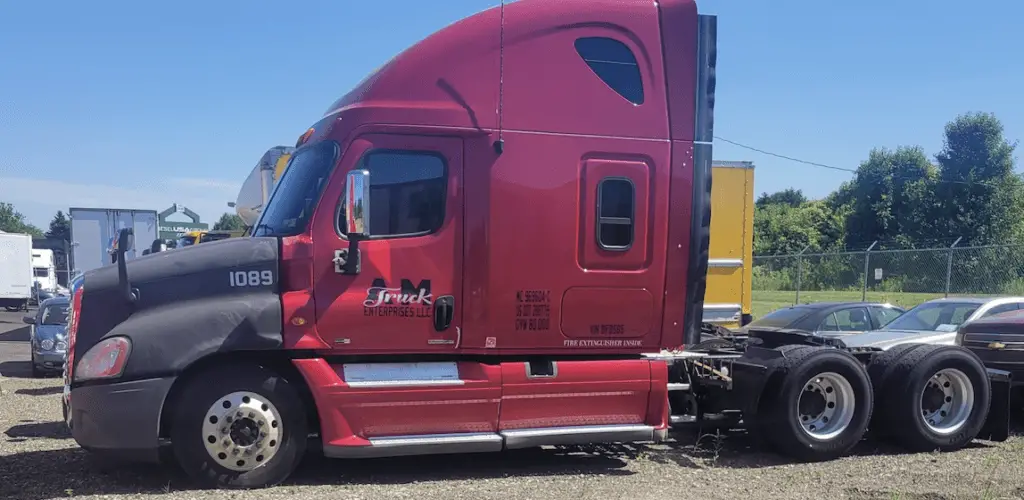Across various sectors in the United States, very few industries are as regulated as the trucking industry. Thus, there are a lot of government rules that control this type of business, one such being licenses and permits. And as with every other permit, these government documents must be completed and updated for a company to remain legal.
Starting a trucking business goes beyond finding the perfect location and equipping your business with the best trucks. While these are also essential features, it’s necessary for new or expanding businesses to have a comprehensive understanding and comply with the permits required to engage in various services. As a result, we compile a list of necessary permits required for a trucking company.
Commercial Drivers’ License

A commercial driver’s license remains the first step necessary in setting up a business throughout the road transportation industry. For any trucking business to operate, the driver must obtain a valid commercial driver’s license, which evidences a driver’s competency.
The process of obtaining a driver’s license is pretty straightforward. Drivers undergo extensive background checks, training, written examinations, and driving tests. The standards for a trucking permit vary based on the state of operation; hence, applicants are advised to make inquiries at the FCMSA office in the state.
A lot of expertise, knowledge, and skills are required when operating a truck to mitigate all risk factors. Thus, by obtaining a commercial driver’s license, drivers become qualified to commercially operate a truck without being a hazard to themselves and other road users.
Federal DOT and Motor Carrier Authority Numbers

In the United States, these numbers are significant permits that trucking businesses must obtain before it’s considered legal entities and allowed to haul cargo. The USDOT Number is a unique identifier used when a company’s safety information, compliance reviews, crash investigations, and inspections are collected or monitored.
On the other hand, the Motor Carrier (MC) number, often called an operating authority, identifies the kind of trucking business and specifies the cargo a company is allowed to haul. Both permits are issued by the Federal Motor Carrier Safety Administration (FMCSA).
A trucking business can only obtain a USDOT and MC number after completing a Motor Carrier Identification Report and Safety Certification Application. Having received both numbers, the FMCSA reviews a trucking company’s request for authority which permits them to get paid for hauling freight as an independent trucking company.
The operating authority review process includes a dispute period whereby a company’s application is made public to seek out comments from anyone who might oppose the company’s request for authority.
Unified Carrier Registration
The Unified Carrier Registration (UCR) is a federally mandated program that replaced the Single State Registration System (SSRS) in 2005. Based on the UCR Act, the Unified Carrier Registration ensures that individuals or companies involved in interstate commercial transportation pay an annual registration fee based on the total number of vehicles in their fleet.
The Unified Carrier Registration aims to verify the active insurance coverage in states where a business operates. The registration is done using the company’s USDOT and MC numbers. Businesses can obtain more information from the United States Department of Transportation.
International Registration Plan
The international registration plan or IRP tag is a license plate that allows a trucking company to operate commercially in all US states and most Canadian provinces. An IRP tag is the best option for truckers seeking to engage in interstate operation under a single registration plate and certificate issued by the base state.
The IRP license plate requires an annual fee which starts counting from the month the vehicle(s) first begin interstate operations. The US Department of Transport provides more information for trucking businesses seeking interstate commercial services.
Insurance
An insurance plan is a requirement to protect a business from significant liability. For individuals looking to start a trucking business, the FMCSA outlines insurance requirements and coverages to be considered. Some popular options include liability coverage, physical damage, cargo insurance, and bobtail.
The insurance option would depend on the type of business and the cargo being hauled. Hence, it’s best to have a competent attorney to review licenses, insurance options, and other paperwork for the best decision.
Heavy Use Tax Regulation
This permit only applies to trucking businesses that look to operate a heavy highway motor vehicle with a taxable gross weight of about 55,000 pounds or more. Trucking businesses under this category must file Form 2290, Heavy Highway Vehicle Use Tax Return, with the Internal Revenue Service annually.
Typically, the tax is about $100 for a gross weight of about 55,000 pounds, with $22 per 1000 pounds for trucks over 55,000 pounds. Companies with trucks weighing over 75,000 pounds would pay $550 annually.
International Fuel Tax Agreement
The International Fuel Tax Agreement (or IFTA) is made between the lower 48 states of the United States and the Canadian provinces to help streamline the reporting of fuel use by motor carriers that operate in more than one jurisdiction. After obtaining an IFTA permit, trucking companies must file fuel use tax returns quarterly with the state they established in.
BOC-3 Form
Another significant permit required to obtain an interstate operating authority is registering an updated BOC-3 form with the Federal Motor Carrier Security Agency. Regarding trucking companies in the United States, a BOC-3 form is a federal filing that allocates a process agent to process legal documents on behalf of the company in each state where the company is authorized to do business.
For instance, a company involved in a legal dispute in any location will need an attorney or agency in that particular location to receive the legal complaint and process it, regardless of where the company is based.
Standard Carrier Alpha Code (SCAC)
The SCAC code is an identification number for US transportation companies that they use to automate freight transportation updates and increase efficiency. It features a unique 2 to 4-letter code to identify carriers and transportation companies. This permit is reserved for trucking companies looking to haul special cargo, such as military and government cargo, as well as international and intermodal loads.
Conclusion
Identifying all the relevant requirements and permits could be overwhelming for individuals looking to start up or expand a trucking business. However, obtaining your operating authority ensures more control and independence. If done correctly, a business owner can significantly increase earnings while providing jobs for others.
Regardless of the scale of a trucking business, its legality must be at the forefront of every decision. As such, trucking companies should obtain each license required for the specific type of operation. Business owners can enlist the services of professionals to help them evaluate their business operations and identify permits necessary for it to operate legally.
